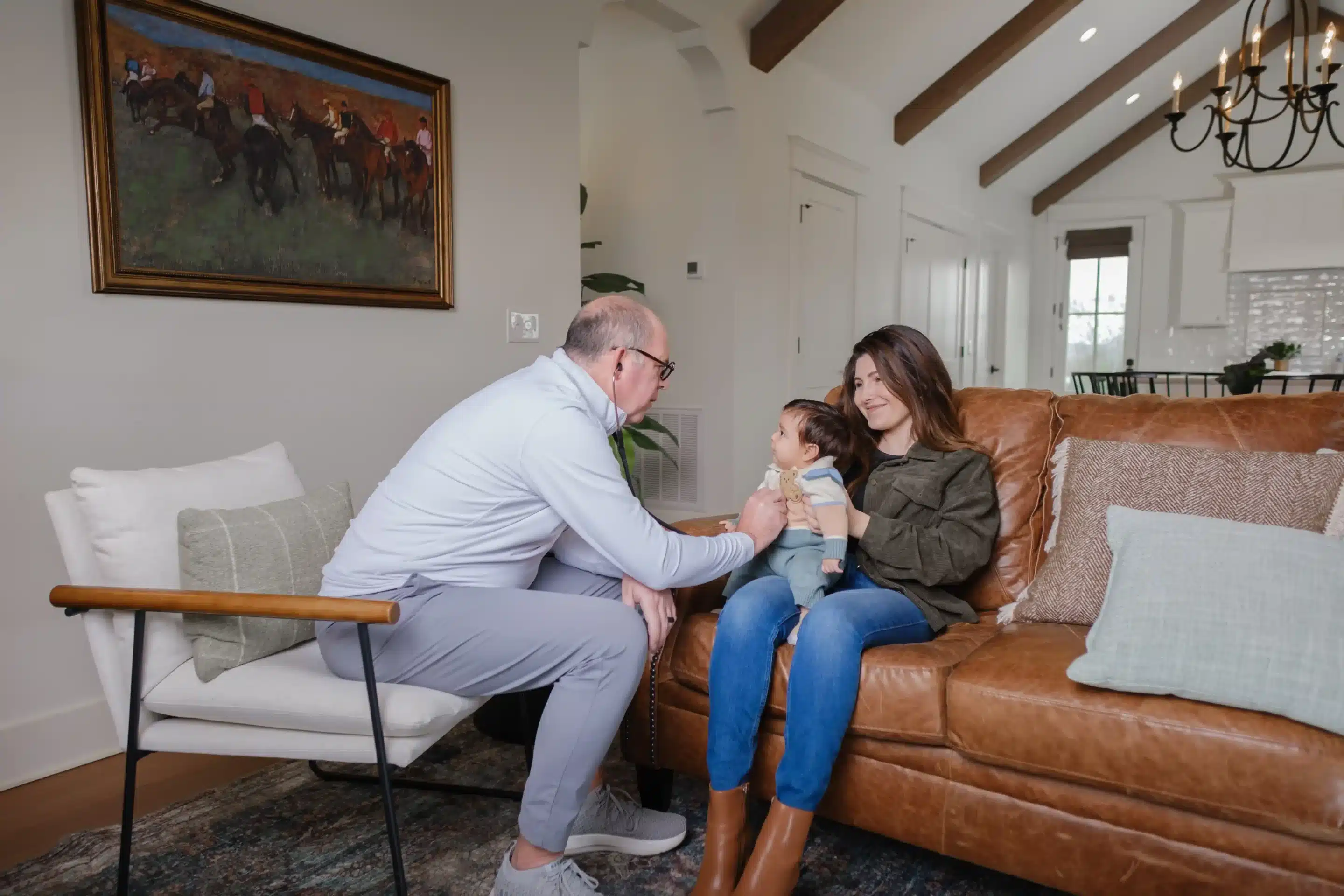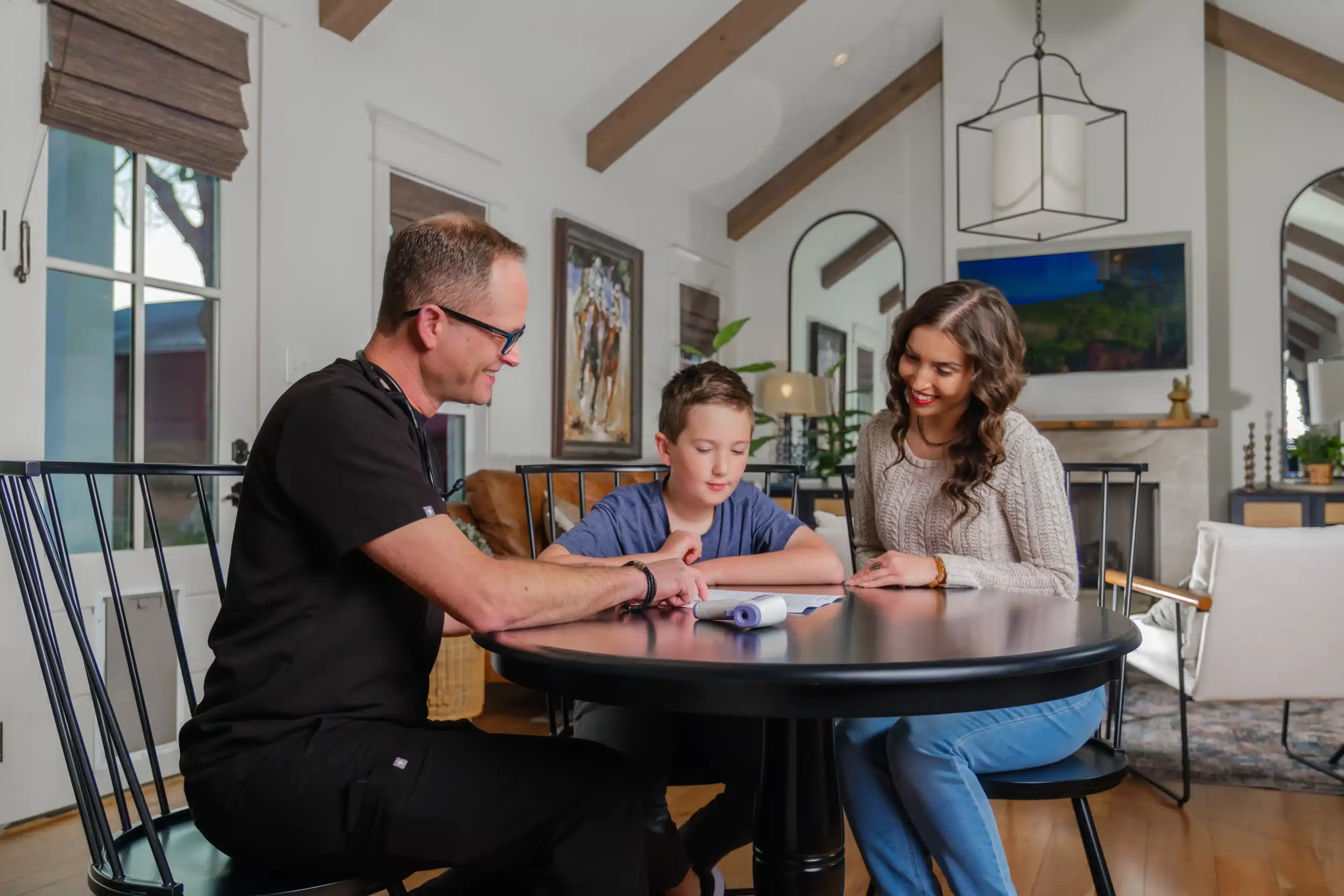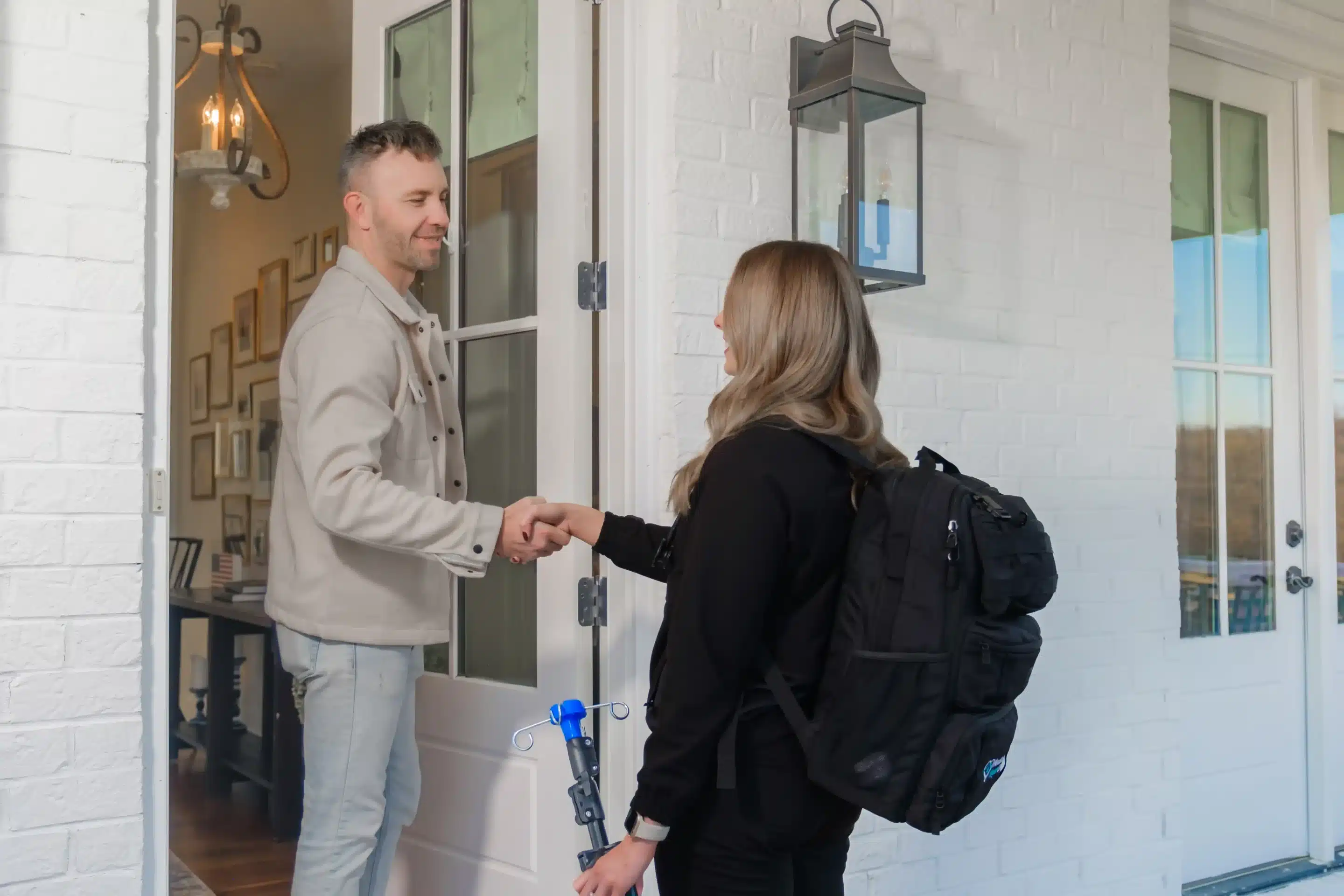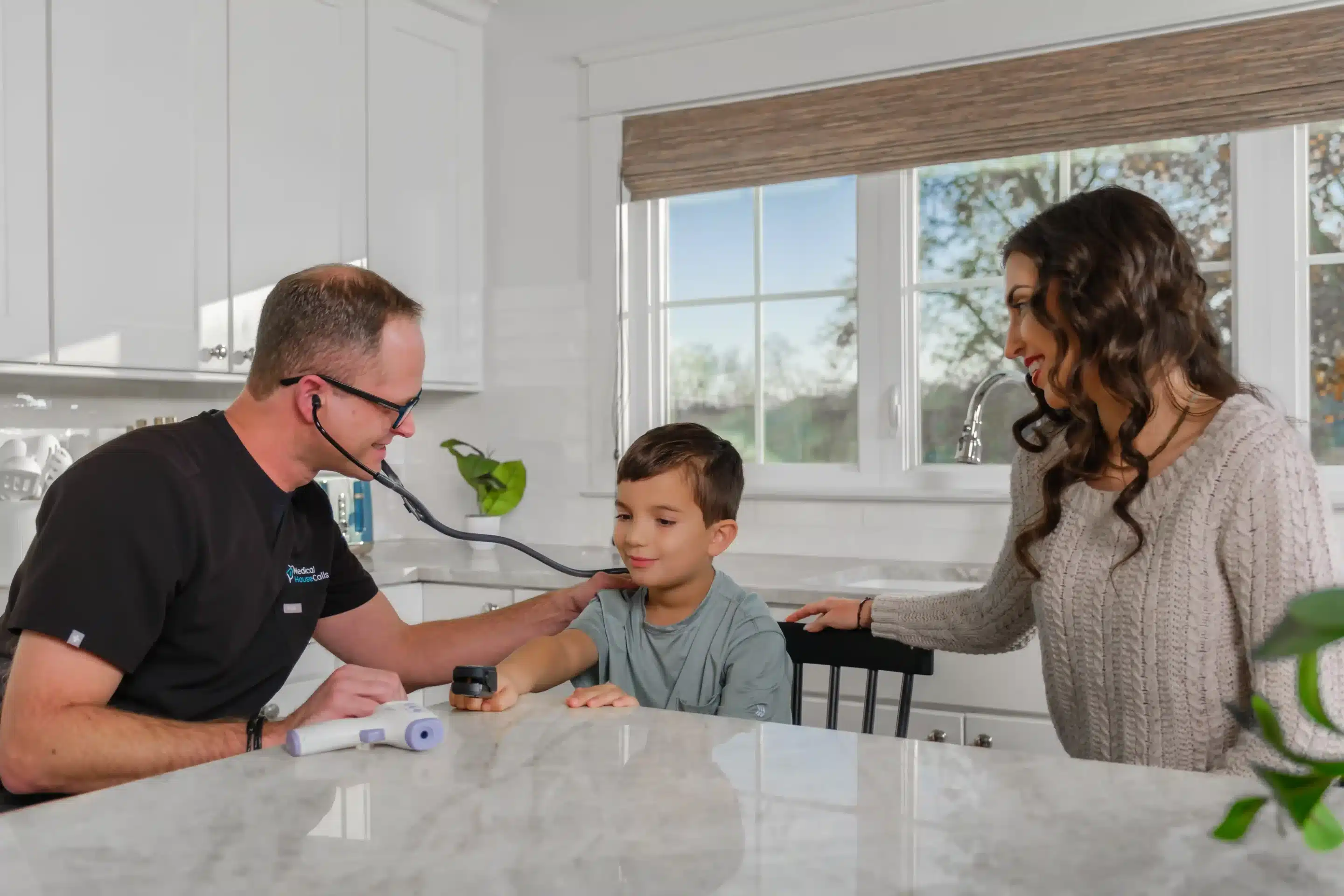Table of Contents
Primary Care vs. Urgent Care: Understanding the Differences and Choosing the Right Option
When it comes to managing your health, understanding the differences between primary care and urgent care is essential. These two types of healthcare services serve distinct purposes, but they often overlap in the minds of patients. For residents in Middle Tennessee and the Greater Nashville area, Medical House Calls offers a unique solution by providing personalized primary care home services, ensuring you get the care you need, when and where you need it.
In this comprehensive guide, we’ll explore the key differences between primary care and urgent care, the benefits of each, and why choosing the right option can make all the difference in your healthcare journey.

Concierge Primary Care At Your Doorstep
Experience primary care without leaving your home. Join our waitlist today and enjoy healthcare tailored to your needs–comfortably and conveniently.
What Is Primary Care?
Primary care is the cornerstone of a patient’s long-term health and wellness. A primary care provider (PCP) serves as your first point of contact for non-emergency medical needs. Primary care focuses on building a lasting relationship with the patient, addressing a wide range of health concerns, and offering preventive, diagnostic, and management services.
Key Features of Primary Care:
- Continuity of Care: Your PCP knows your medical history, family history, and long-term health goals.
- Preventive Care: Regular check-ups, screenings, and vaccinations to maintain health and prevent illnesses.
- Chronic Condition Management: Comprehensive care plans for managing ongoing conditions like diabetes, hypertension, and asthma.
- Referrals: Coordination with specialists for advanced care.
At Medical House Calls, our concierge primary care services bring expert medical care directly to you, offering unmatched convenience and personalized attention.
What Is Urgent Care?
Urgent care is designed for immediate, non-life-threatening medical issues that require prompt attention but do not warrant a trip to the emergency room. Urgent care centers are typically walk-in clinics that provide services for a variety of acute medical issues, such as minor injuries or infections.
Key Features of Urgent Care:
- On-Demand Access: Walk-in services for acute health concerns.
- Extended Hours: Many urgent care centers are open evenings, weekends, and holidays.
- Wide Range of Services: Treatment for minor injuries, illnesses, and diagnostic services like X-rays and lab tests.
- No Long-Term Commitment: Patients are seen on a one-time basis without establishing a continuing relationship.
Urgent care is ideal for situations that can’t wait for a primary care appointment but don’t require emergency intervention.
Primary Care vs. Urgent Care: The Key Differences
If you’re wondering, “What is the difference between primary and urgent care?” here’s a breakdown of the main distinctions:
| Aspect | Primary Care | Urgent Care |
| Focus | Long-term health management | Immediate, short-term care |
| Relationship | Builds a lasting patient-provider relationship | Episodic, one-time interaction |
| Services | Preventive care, chronic disease management, referrals | Treatment for minor injuries, illnesses, and urgent health concerns |
| Availability | By appointment (some offer same-day) | Walk-in, no appointment needed |
| Cost | Generally covered by insurance for routine visits | Typically higher out-of-pocket costs |
When to Choose Primary Care
Primary care is your go-to resource for overall health and wellness. Here are some scenarios where you should prioritize a visit to your PCP:
1. Routine Check-Ups
Regular health screenings and wellness exams are essential for detecting issues early and maintaining long-term health.
2. Preventive Care
Primary care focuses on preventing illnesses through vaccinations, lifestyle counseling, and early intervention.
3. Chronic Condition Management
If you have a condition like diabetes, high blood pressure, or arthritis, your PCP will help you manage and monitor it effectively.
4. Continuity of Care
Building a lasting relationship with your PCP ensures they have a comprehensive understanding of your health history, allowing for personalized and consistent care.
5. Referrals to Specialists
If you need specialized care, your PCP will guide you to the right specialist and ensure coordinated care.
When to Choose Urgent Care
Urgent care is best for non-life-threatening health issues that require prompt attention but don’t justify a trip to the emergency room. Here are some examples of when to consider to urgent care:
1. Minor Injuries
Sprains, strains, minor fractures, and cuts that require stitches can be treated at an urgent care center.
2. Acute Illnesses
Conditions like the flu, ear infections, or strep throat that need immediate treatment can often be handled at urgent care.
3. Diagnostic Services
Urgent care centers often provide X-rays, blood tests, and other diagnostics for quick assessments.
4. After-Hours Care
When your primary care is closed, urgent care can fill the gap for non-emergency medical needs.

The Benefits of Primary Care Home Services
For Middle Tennessee residents, Medical House Calls offers a revolutionary approach to primary care. Our primary care home services combine the best aspects of primary care with the convenience of receiving care in your own home.
Key Benefits:
- Convenience: Skip the traffic and waiting rooms—our providers come to you.
- Personalized Attention: Spend more time with your provider in a comfortable setting.
- Comprehensive Care: From preventive health to chronic condition management, we cover it all.
- Flexible Scheduling: We’re available 365 days a year, from 7 AM to 8 PM, ensuring care fits into your schedule.
- Better Outcomes: Patients who receive consistent, personalized care at home often experience improved health outcomes.
Why You Need Both Primary Care and Urgent Care
While primary care and urgent care serve different purposes, they complement each other. Establishing a strong relationship with a primary care provider ensures your health is proactively managed, while urgent care is there for unexpected issues.
How to Integrate Both:
- Start with Primary Care: Make regular visits to your PCP for check-ups and chronic disease management.
- Use Urgent Care Wisely: Turn to urgent care for acute issues that can’t wait for a scheduled appointment.
- Coordinate Care: Share records from urgent care visits with your primary care provider for seamless follow-up and continuity.
The Medical House Calls Advantage
At Medical House Calls, we bridge the gap between primary care and convenience. Our primary care home services are designed to:
- Save You Time: No more travel or waiting rooms—we bring the care to you.
- Enhance Comfort: Receive care in the familiarity of your home.
- Provide Comprehensive Care: From preventive services to chronic disease management, our providers handle it all.
- Be There When You Need Us: With flexible hours and same-day appointments, we’re always available to address your needs.
Take Charge of Your Health Today
Understanding the difference between primary and urgent care empowers you to make informed decisions about your healthcare. For residents of Middle Tennessee and the Greater Nashville area, Medical House Calls offers a unique solution that combines the best of both worlds.
Ready to experience the benefits of personalized, in-home primary care? Contact us today to learn more about our Primary Care service plans and schedule your first appointment. Together, we’ll create a healthcare plan tailored to your needs.
Family & Individual Care Available
Enjoy personalized primary care customized for families and individuals, delivered conveniently at home. Discover flexible plans designed to keep everyone healthy and thriving.















